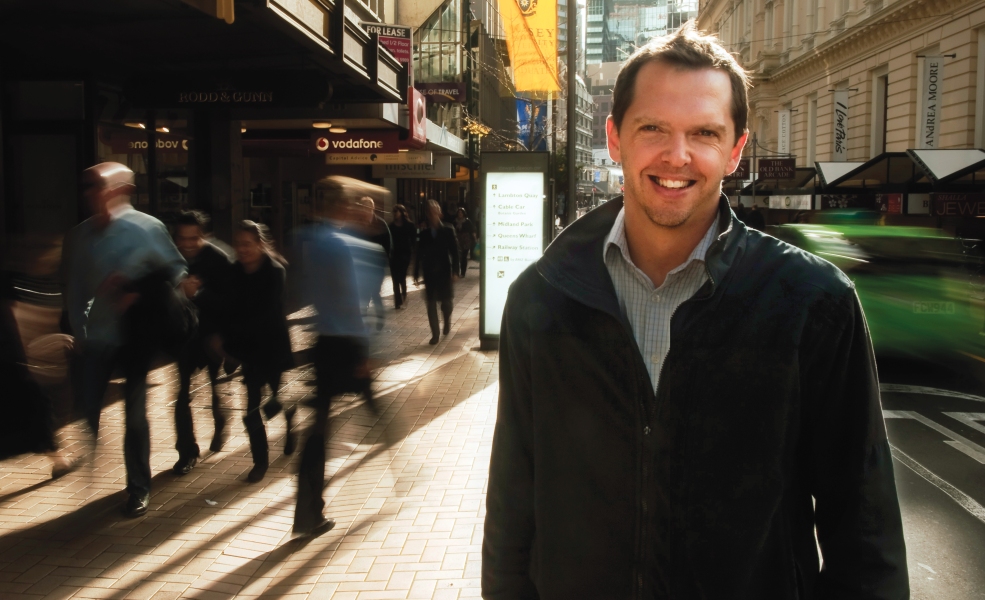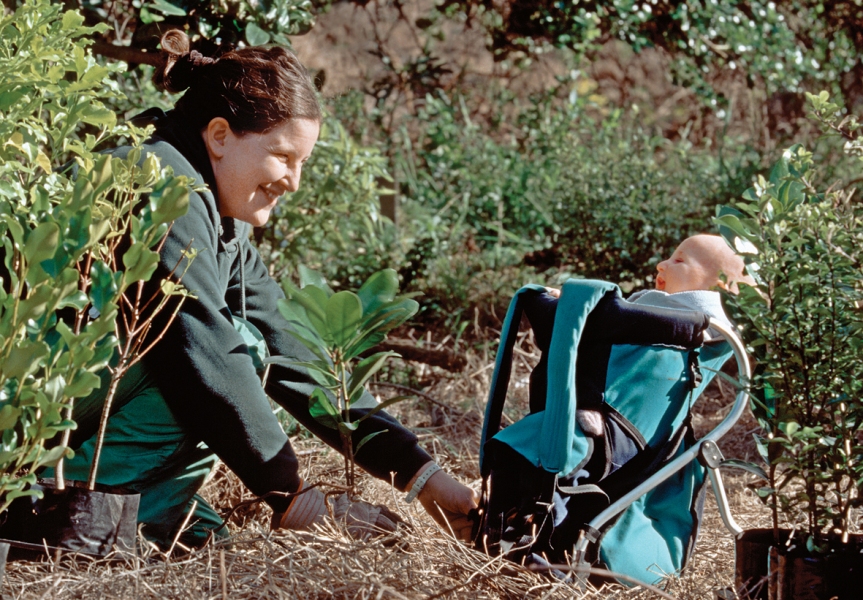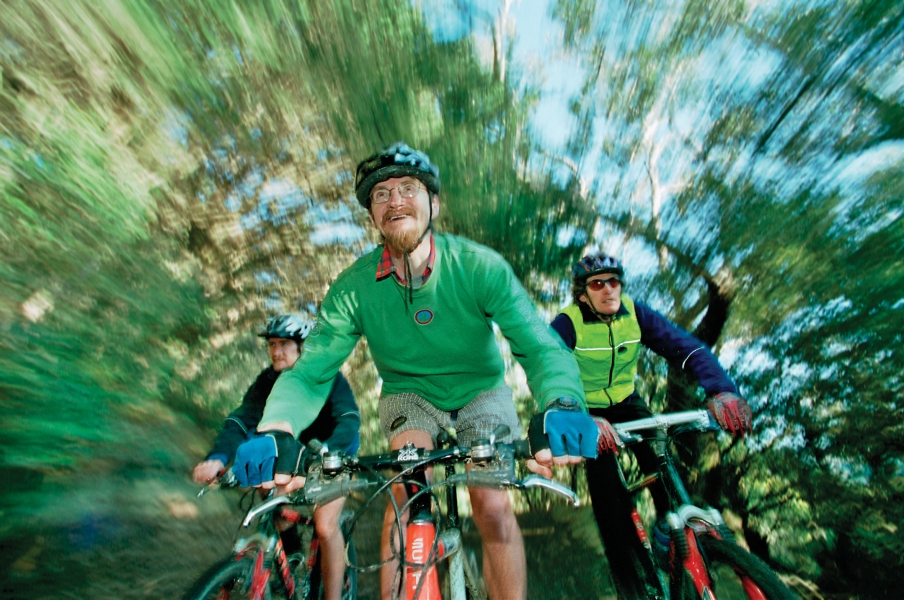Psychology may yet be the most potent foil to climate change, finds Harriet Palmer.
"We associate truth with convenience, with what most closely accords with self-interest and personal wellbeing, or what promises best to avoid awkward effort or unwelcome dislocation of life"
- John Galbraith, institutional economist.
Seventy-six per cent of Kiwis, found a survey for the New Zealand Business Council for Sustainable Development, believe that climate change is a problem. Sixty-four per cent believe humans are causing it, and 65 per cent say we're already feeling the impacts.
More than half of us (53 per cent) told the Shape New Zealand survey that we worry about that, but New Zealand's greenhouse gas emissions are nevertheless set to increase by 26.4 per cent above 1990 levels by 2012.
That contradiction between what we feel we should be doing, and what we are doing, is fertile ground for the social sciences. Psychologists, analysts, academics, policymakers, politicians – they're all dying to know why what we think about climate change, and what we do about it, seem to be two very different things.
Many argue that, in fact, our very success or failure to address climate change depends on the answer.
Mike Hulme, a climate scientist at the University of East Anglia, addressed the British Science Festival last year with the contention that "Science evidence is not enough. Scientists have made the mistake of assuming that if we understand the climate science, we just have to communicate this, and contribute to a consensus on policy".
In fact, he said, the situation now demands a social science and humanities approach. It was clear, he added, that our culture, beliefs and knowledge all play a big part in shaping our perception of climate change.
Richard Nottage, Coordinator of the New Zealand Climate Change Centre (NZCCC) agrees. He wants to see more social scientists in New Zealand's climate change research mix.
"Many of the solutions now lie in the behavioural space," he says, "and that needs recognition from researchers across all disciplines. Then the public will have confidence in what they have to say. Our challenge, ultimately, is to bridge the gap between what scientists know and what people understand".
A recent workshop organised by the NZCCC brought social researchers together to debate just how 'social knowledge can contribute to the understandings of, and human responses to, climate change'.
Dr Karen Cronin, a Science Leader at Environmental Science and Research, co-authored the workshop proceedings: "The many different aspects of society – social processes, institutions, behaviours, cultures, beliefs and practices – which are central to our high-carbon lives are also an important component of future low-carbon lives," says Cronin. "The key to successful transformation – to more sustainable and low-carbon ways of living – is social knowledge".
Psychologists are trying to find out what happens in our heads when we hear the 'CC' words. They suspect that climate change presents a unique set of barriers that stop people engaging with the reality, and sap their will to act.
Crime, unemployment, the economy, are potent everyday reminders of our vulnerability, but the diffuse, creeping nature of climate change means the signals are generally weak. We don't notice gradual, tiny increases in temperature, because they're often swamped by normal daily and seasonal temperature variations.
Climate scientists tell us that, even if we sell our cars and turn everything off now, the mercury will go on climbing for years – possibly beyond the critical two degrees of warming tipped to precipitate drastic change – thanks to a lag effect. For a lobbyist, that's a powerful incentive; it ramps up the immediacy of the threat, and puts a physical face on an abstract phenomenon.
For most commuters, though, it's well down the order. Psychologists suggest we have a "finite pool of worry" – as one perceived risk takes immediacy, others get bumped down, or off, the list. Respondents told the NZBCSD survey that climate change was sixth on their list of concerns, with things like fuel prices, the economy, household finances and crime much more likely to occupy people's worrying time. Studies in the US – even in green California – have shown that climate change takes precedence during the good times, but recedes to the back of peoples' minds in times of high unemployment.
So most of us save our worrying for today, or for when the mortgage is due. Asking us to worry about a problem 50 or 100 years away ignores a fundamental human trait; our minds evolved to solve mostly immediate challenges – communicating, finding food, evading predators. There's little hard-wiring in the human brain devoted to analysing the plausibility or impact of events more than a few months away. We're not much good at assessing impacts that, however alarming the projections, still sound hypothetical.
In fact, work has shown that dire predictions about natural disasters, mass evacuations, ice-cap melt and extinction might actually stupefy people, rather than galvanise them. Last year, Berkeley psychologists Robb Willer and Matthew Feinberg found that people shown scientific evidence of the most negative aspects of warming were more likely to dismiss or deny what they saw.
Scepticism was highest in those study subjects who'd previously indicated an implicit belief in a fundamentally just world. Messages about the biggest losers from climate change – developing nations, polar bears, future generations, those least responsible for it – apparently challenged their convictions around fairness so deeply that they went straight to denial. Many people equate cutting their emissions with a loss of freedom and convenience. When faced with the choice of a cold, wet bike ride or taking the car, human nature usually dictates that our personal short-term interests tend to outweigh the longer-term interests of future generations. Appeals to do 'the right thing' can contravene our other desires, which can run from the purely indulgent, like a patio heater, to the aspirational – 'getting ahead' can mean a bigger house, two cars, holidays to the Gold Coast.
It feels like environmentalists are asking us to give up the good life. That's when we're tempted to slip into what Albert Bandura, Professor of Social Science in Psychology at Stanford University, calls "selective moral disengagement," a neat trick we've learned to keep guilt at bay.
"Disengagement of moral self-sanctions," he writes, "enables people to pursue detrimental practices freed from the restraint of self-censure". We do this in a number of ways, argues Bandura. We might, for instance, justify environmentally-harmful practices by invoking the social or economic good. Mining proposals are sure to mention the jobs they'll create.
Or we might, in Bandura's words, minimise our accountability "by displacement and diffusion of responsibility". In other words: 'What harm can my widescreen TV do when China's building a coal-fired power station every other week?'
NIWA scientists have encountered many of these beliefs. Dr Helen Rouse is a resource management specialist, leading a project looking at how coastal communities can be encouraged to consider, and counter, the anticipated effects of climate change. As part of that work, she's run workshops with coastal dwellers in the Coromandel. Her experience is that people do, indeed, consider climate change as something very hazy and distant, both in time and space.
"People are still at the 'Is it real or not?' stage," says Rouse. "They feel it's something remote, and haven't thought about how it might affect them, or their children and grandchildren. Knowledge about climate change is general and vague, and people are frightened away from seriously engaging with the implications.
"The distance from the issue to what people can actually do is a real challenge".
Psychologists describe climate change risks as having 'high psychological distance' – a long way off in the future, happening to somebody else, on the other side of the world. You might call that optimism, or you could call it a foreshortened perspective. Writer Donald Collins coined the apocryphal example of the man who fell from the Empire State Building. As he passes the 68th floor, he thinks to himself: "So far, so good".
Survey after survey has shown that, while people acknowledge that climate change is real, they don't feel it will affect them personally. Americans in particular believe strongly that technology, not their own actions, will rescue the climate.
Psychologists tell us that emotional responses drive motivated decision-making. Interviews with Australians who believe humans are responsible for climate change found that fear was their strongest emotional response. But fear can leave us feeling overwhelmed or powerless, overcome by the lifestyle changes we feel we should be making.
Dr Niki Harré, Associate Professor in the Department of Psychology, University of Auckland, argues a better appreciation of human psychology would prompt a much wider response.
Harré believes our morals, and beliefs about justice, are a big part of the equation. Inherent moral values guide much of our behaviour, and Harré says we'd make more progress if people thought about conserving resources at least as a societal convention, but better still, as something that was simply morally right.
People tend to self-police moral behaviour, she says, and will intervene when others do things we consider morally wrong. If we seriously believed that risking the well-being of future generations was immoral and unjust, we would take action, and strongly encourage others to do the same.
Instead, argues Harré, behaviour driven by convention is rather left to authorities to regulate, and her preference is for peer pressure from the ground up, rather than risk a nanny state backlash.
It's time for more positive emotions around climate change response, she insists. Social research overseas backs her up. Too many climate messages are either dull, patronising or depressing, according to Futerra, the UK sustainability communications gurus.
A neural phenomenon called the 'availability heuristic' means that humans put the most credence in that outcome they can most readily or vividly imagine. So if they're repeatedly subjected to a vision of climate hell, it becomes the most believable conclusion. Dire predictions and warnings of climate chaos may actually be goading people towards it.
But psychologists have long argued that the reverse is true too: that people who carry positive scenarios or goals in their minds tend to move towards them, or as one researcher put it: "when you change the way you look at things, the things you look at change".
So the answer, many contend, is to substitute climate hell for a low-carbon, smart green future, and it looks like the sort of place we'd all want to be. Guilt-free travel on electric trams powered by wind turbines that don't just generate kilowatts but jobs.
New Zealanders are increasingly buying into just such a future. Forty-eight North Island towns and suburbs, and 10 in the South Island, have signed up to the transition town movement. Some have formally adopted a strategic vision for 'their place', while others operate less formally.
This ground-up initiative is about getting local people together to create a vision of how their community could look in the future. By sharing knowledge – it can be something as simple as how to grow vegetables – people are equipped and empowered to take on two big challenges – climate change and peak oil.
In Wellington, Paul Kennett, one of a trio of cycling brothers and local environmental campaigners, is pushing the concept hard.
"The idea of transition towns has been around for a while, but since 2008 the whole thing has really taken off," says Kennett. "It provides a social response. I think there's a shift now in people's attitudes, even if it is only happening very slowly".
Transition towns, then, ferment positive emotions as people work towards their shared vision of a better future, a better place to live. They also offer people something more tangible, more immediate, to think about, reducing the problem of psychological distance.
More of a smart green heaven than a climate hell...



